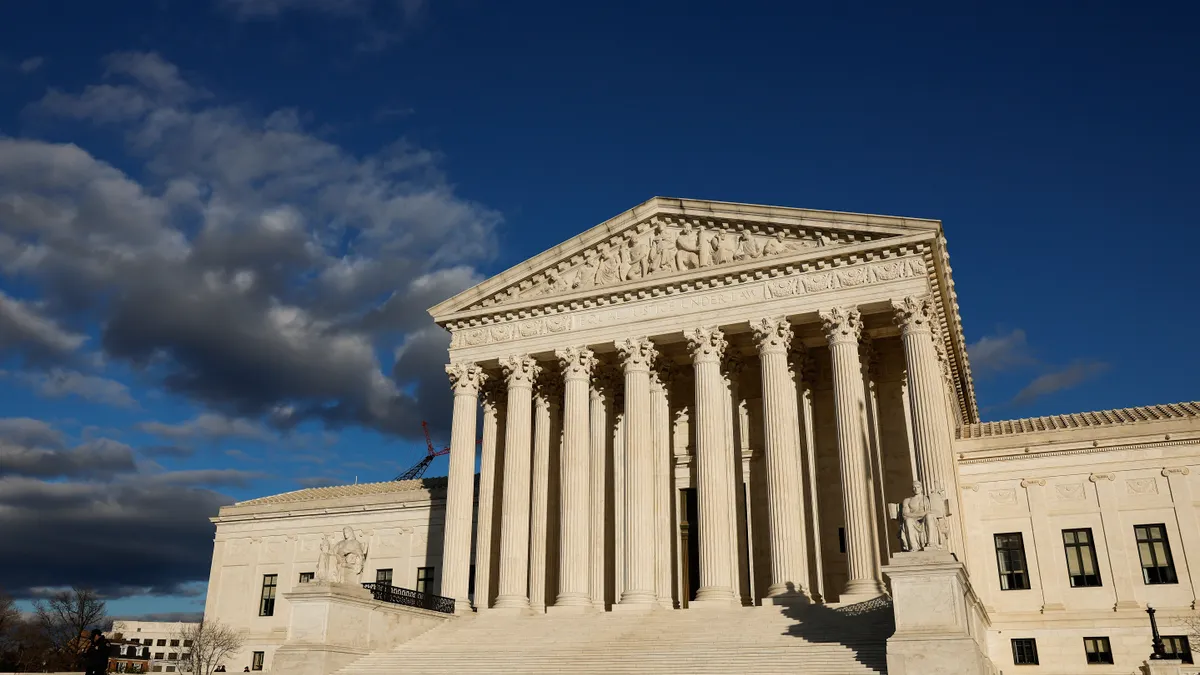The U.S. Equal Employment Opportunity Commission has received thousands of charges related to COVID-19 since the pandemic began. As of December 2021, more than 2,700 charges were related to COVID-19 vaccines, Bloomberg Law reported, with 300 of these charges citing the Americans with Disabilities Act.
Those charges signal why employers need to be careful in crafting reopening policies and procedures, Evangeline Hawthorne, director of EEOC's field office in Tampa, Florida, said at an April 11 virtual event; "It's really never been more important to be flexible, often times creative, and to communicate with employees so you can basically help them perform their jobs effectively as we navigate through the pandemic."
Hawthorne and her fellow panelists honed in on several hot-button intersections between the ADA and COVID-19 topics, including vaccine mandates.
At what point is COVID-19 a disability?
COVID-19 can present a variety of ways but may be classified based on the duration of symptoms, said Dr. Shelley Timmons, physical therapist and assistant director of the Virgin Islands University Center for Excellence in Developmental Disabilities.
So-called "short" COVID-19 typically lasts fewer than three weeks, Simmons said, while "post-acute" COVID-19 symptoms may linger beyond three weeks, but clear up after 12 weeks. "Long" COVID-19 occurs when symptoms persist for 12 weeks or longer.
The ADA is designed to have an open-ended definition of the term "disability," said Shammi Carr, disability advocate at the Disability Rights Center of the Virgin Islands. Generally, though, the law defines a disability as any physical or mental impairment that substantially limits a major life activity. Covered employees also must have a record of, or be regarded as having a substantial impairment.
Short-term COVID-19 cases may not necessarily fall under the purview of the ADA, Carr said, as employees may be able to take shorter periods of leave to recover from illness. But some states and jurisdictions may have legal protections for those experiencing symptoms that substantially limit major life activities, she continued.
In published guidance, EEOC has not addressed whether an individual with COVID-19 is an individual with a disability, Hawthorne said, though in the case of long COVID-19, "we would agree that would be covered as a disability." This may evolve over time, she noted, "but that's the current standing right now."
How do you accommodate workers with long COVID-19?
Long COVID-19 may be one of the most pressing issues for employers undergoing workplace reopenings. "As time goes on, we're going to hear more and more about the effects of long COVID," Carr said. "We want to get a jump start on this for employers."
Timmons cited data from the Centers for Disease Control and Prevention that, as of March 1, 2022, an estimated 43% of the U.S. population had been infected with COVID-19. Of that contingent, long COVID-19 is estimated to have affected between 10% to 30% of patients.
The science on long COVID-19 is still evolving, but the condition can affect a wide range of organ systems, Timmons continued. Symptoms run the gamut of bodily processes and may include fatigue, malaise, anemia, skin disorders, coagulation disorders and mental health issues, among other conditions. The World Health Organization has said that it is still working with patients to better understand long COVID-19.
Employees may need to be reminded that they should not ignore possible symptoms of long COVID-19, Timmons said, as some may dismiss their symptoms or fail to recognize them altogether.
Previously undisclosed disabilities can come into play, too. For example, if an employee with undisclosed myalgia contracts long COVID-19 and is experiencing a worsening of symptoms that did not occur previously, that is something employers should be aware of, Timmons said.
Carr offered a long list of potentially reasonable accommodations employers may consider for those experiencing long COVID-19. Telework, in particular, has been utilized throughout the pandemic where feasible. Others may benefit from flexible scheduling policies or flexible leave lasting longer than five days and up to a month.
Aside from these provisions, employers can also take precautions such as requiring face coverings and other personal protective equipment. In customer service settings that require an employee to make his or her face visible, Carr said employers may provide employees low-cost, clear face coverings. Ergonomic solutions exist both for those working at physical worksites as well as those working remotely.
Additionally, employers may be able to restructure certain parts of an employee's job or otherwise reallocate them, Carr said, though this would not apply to the essential functions of an employee's job. Essential functions "can't be restructured," she continued, "but they can be accommodated."
Carr also pointed employees to online sources for accommodation tips, including the Job Accommodation Network, EEOC's COVID-19 guidance webpage and the Northeast ADA Center at Cornell University.
Are your COVID-19 vaccine questions lawful?
Questions related to a disability screening — as with any medical examination administered by an employer — must be job-related and consistent with business necessity, said Hawthorne. This includes questions about COVID-19 symptoms, diagnoses and exposure.
Exposure is specific to viral tests, not antibody tests, Hawthorne continued, and she said employers should be mindful that they do not want to violate the Genetic Information Nondisclosure Act in the process of asking about an employee's exposure.
An exception to this general rule occurs when an employee has been given a conditional job offer but has not yet begun work. In this case, an employer may make any such inquiries as long as it does so for all entering employees in the same job category.
EEOC also has said in its guidance that employers may ask for proof of COVID-19 vaccination because such questions are not considered disability-related under the ADA. But if an employee says they are not vaccinated, "you want to be careful about asking the why," Hawthorne said, because "this may result in the employee revealing confidential information" about a disability.
Furthermore, policies requiring either verbal confirmation or documentation of vaccination contain medical information, meaning they are still subject to medical confidentiality provisions, Hawthorne continued. In response to an audience question, she said that employers should not place vaccination requirements into their job descriptions. "This is a fluid thing," she said. "You don't want to lock yourself into something that may be subject to change again."
Employees are also protected from being retaliated against for participating in activities like filing a charge related to an employer's vaccination policy or requesting an exemption from the policy, Hawthorne added.






















